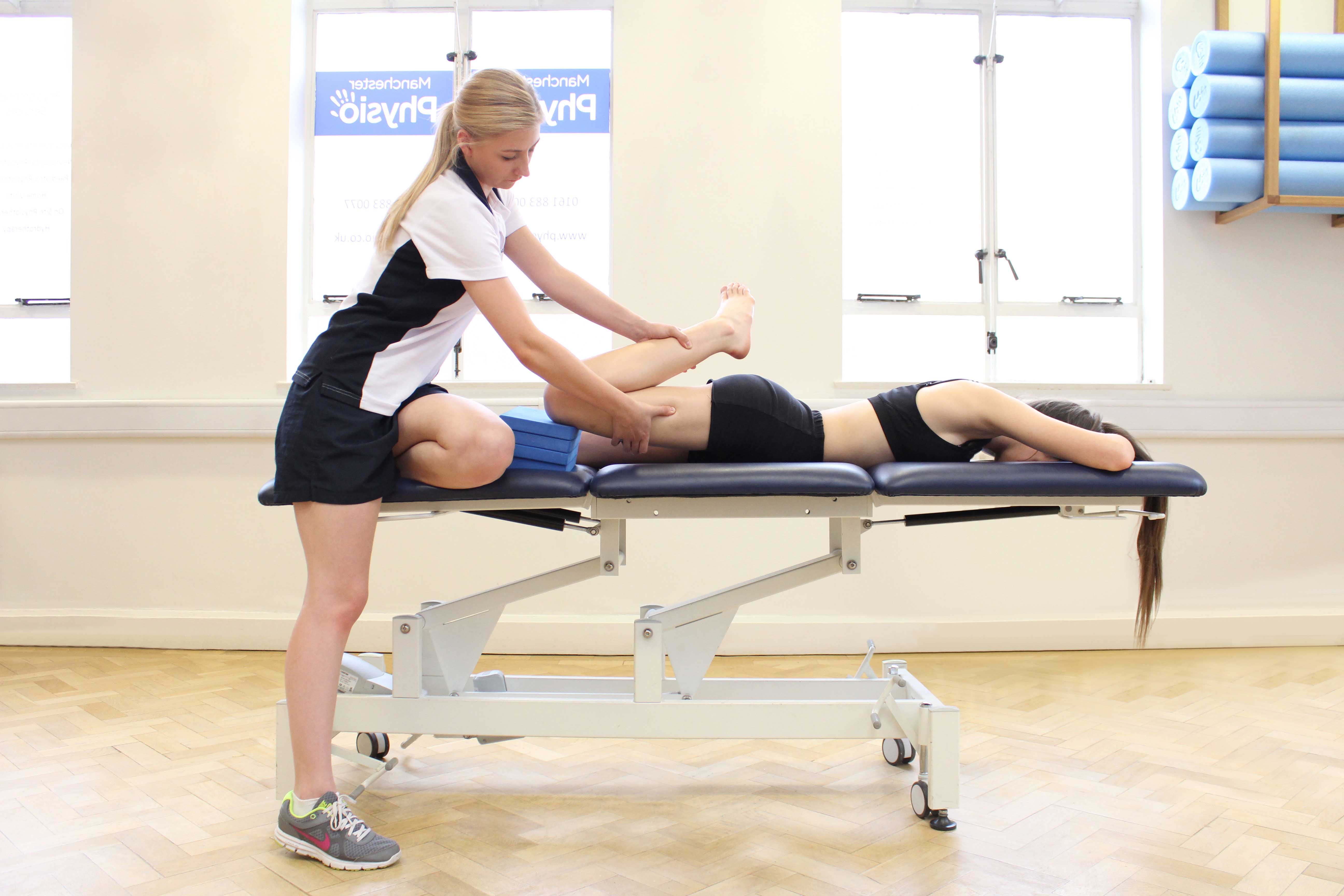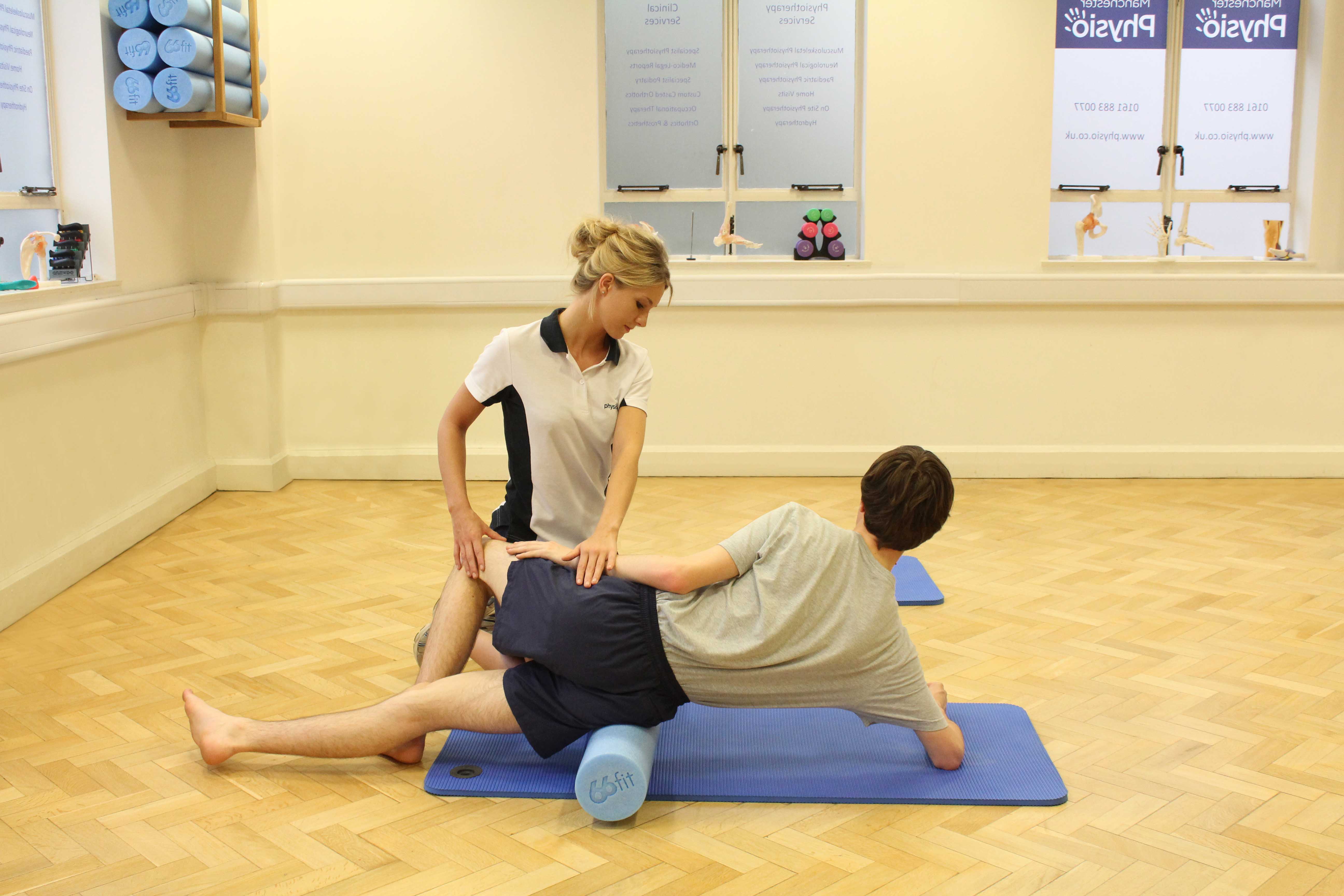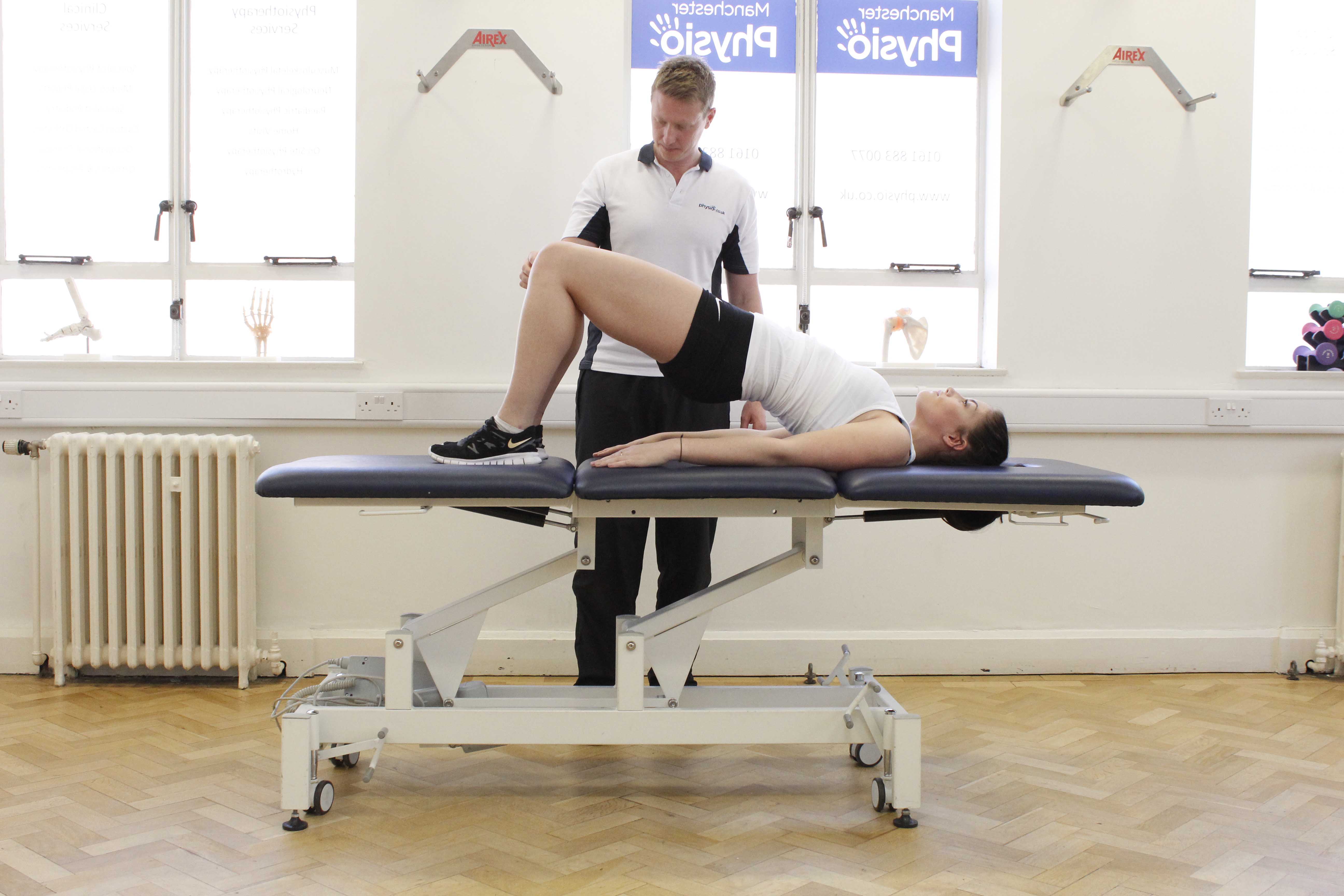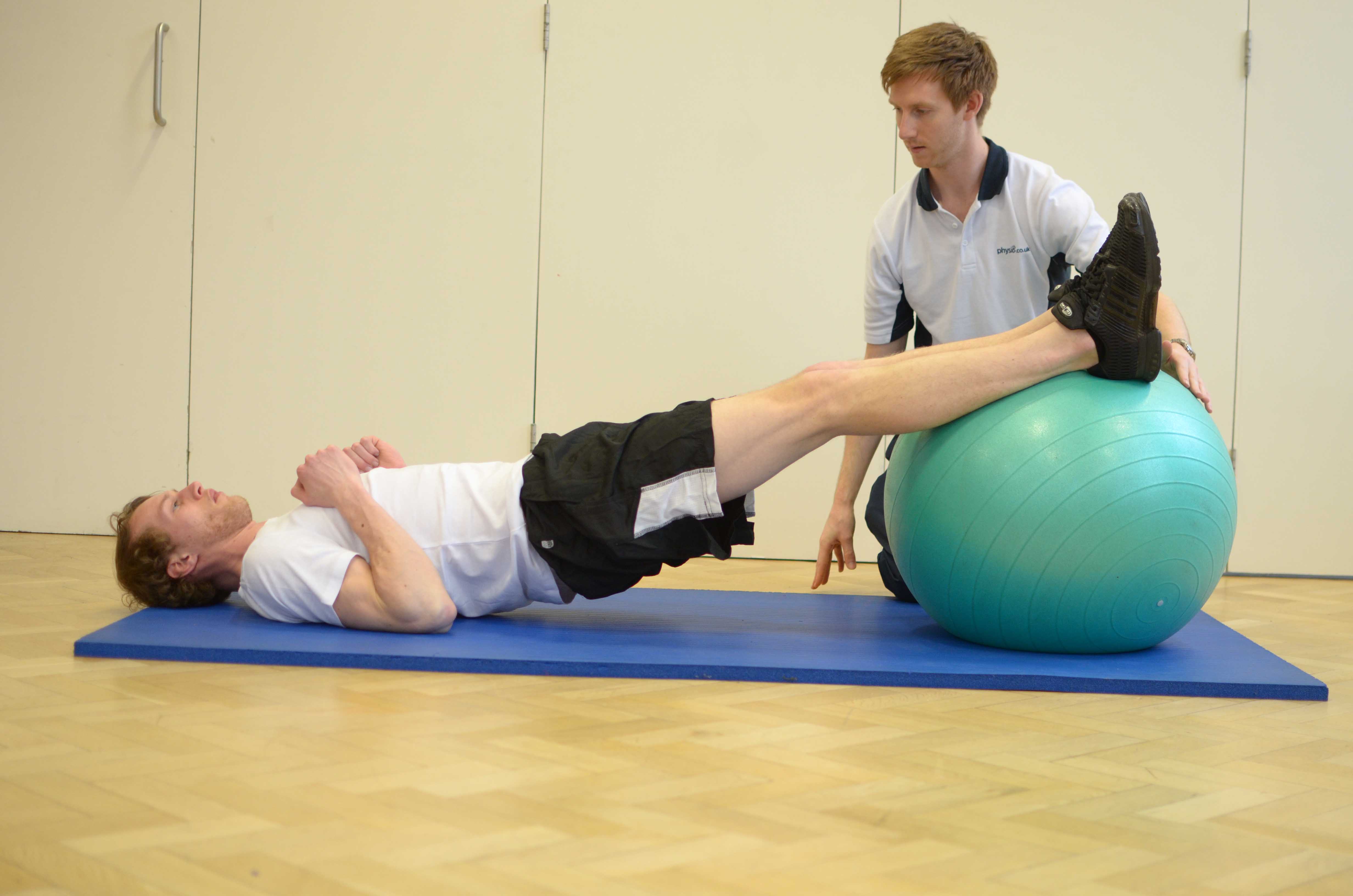What is a labral tear?
The head of the femur is located in the acetabulum (hip joint socket). This socket is lined with a ring of cartilage known as the labrum which provides support to the acetabulum. When this cartilage becomes torn, it is known as a labral tear. Physiotherapy is an excellent treatment for labral tears.
 Above: Passive stretch of the muscles and connective tissues of the hip by specialist therapist
Above: Passive stretch of the muscles and connective tissues of the hip by specialist therapistHow does a labral tear occur?
Labral tears can be due to many different reasons including trauma to the hip area such as a fall or road traffic accident. Repetitive strain injuries during sporting activities and twisting movements may also cause labral tears.
What are the symptoms of a labral tear?
The main symptom of labral tears is pain in the hip and groin region. You may also notice a clicking or grating noise coming from the hip joint if the labrum has come loose from the acetabular socket. Other symptoms include:
 Above: Active stretch and mobilisations of the hip and pelvis under supervision from a therapist
Above: Active stretch and mobilisations of the hip and pelvis under supervision from a therapistWhat should I do if I have a labral tear?
It is important to gain a professional opinion about your condition as soon as possible. This may involve a series of tests including MRI scans and X-rays. When a diagnosis of a labral tear has been confirmed, you should begin a personalised physiotherapy programme as soon as possible to help minimise your symptoms.
 Above: Progressive strengthening hip exercises supervised by experienced therapist
Above: Progressive strengthening hip exercises supervised by experienced therapistPhysiotherapy treatment for a labral tear.
Physiotherapy for labral tears will be specific to your condition and goals. Potential treatments include a home exercise programme, hydrotherapy and electrotherapy techniques. Other treatments include:
What shouldn’t I do if I have a labral tear?
You should avoid continuing any activities that cause your symptoms to become worse as this may delay your recovery. Do not ignore your symptoms as this may also prolong your rehabilitation.
 Above: Progressive strengthening hip exercises supervised by experienced therapist
Above: Progressive strengthening hip exercises supervised by experienced therapistCould there be any long-term effects of a labral tear?
Labral tears are usually managed conservatively (non-surgically) with physiotherapy. If surgery is necessary to repair the labarum, your physiotherapy will be longer following the operation.
To arrange a physiotherapy appointment call Physio.co.uk on 0330 088 7800 or book online.

 0330 088 7800
0330 088 7800


































